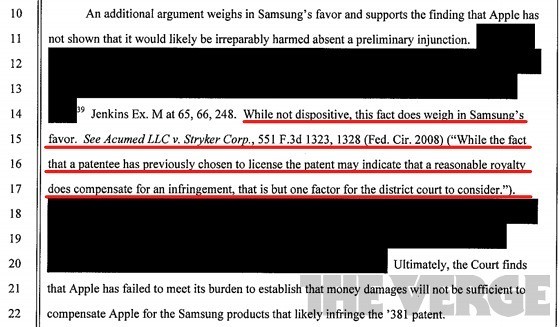Before Apple’s legal entanglements with Samsung took center stage this past April, the more prominent Apple lawsuit involved their complex patent dispute with Nokia that involved a broad range of patents and culminated in an extensive number of suits and countersuits.
This past June, Apple announced that it had settled its dispute with Nokia, with Apple agreeing to pay a one-time lump sum fee to Nokia in addition to royalty rates for various patents related to 3G standards. Furthermore, Apple cryptically acknowledged that the two companies had also entered into a cross-licensing agreement for a few patents, but not any that “make the iPhone unique.”
Well as it turns out, it looks like one of those patents might be patent #7,469,381 which relates to inertial scrolling, the kickback type of effect that iOS users see when they’re scrolling through a list and reach the bottom.
The ‘381 patent was asserted by Apple against Samsung as part of its motion to attain a preliminary injunction and was ultimately denied on the grounds that Apple failed to prove that Samsung’s ongoing use of intertial scrolling would result in Apple suffering irreparable harm.
Now, Nilay Patel of The Verge illuminates the reasoning behind the Court’s decision. Having been informed as to certain redacted portions of the Court’s order, Patel writes that Apple signed licensing agreements for said patent with both Nokia and IBM. What’s more, Apple reportedly offered to license the patent out to Samsung in November 2010 during the course of a failed settlement negotiation.

As you can see above, the Court reasoned that if Apple had already licensed out the ‘381 patent to Nokia and IBM, it tends to suggest that “a reasonable royalty does compensate for an infringement.” So if a royalty rate would compensate for Samsung’s alleged patent infringement, it’s harder for Apple to argue that it would suffer irreparable harm in the absence of a preliminary injunction. As a result, Apple has a harder time meeting one of the necessary requirements to successfully warrant a preliminary injunction.





Mon, Dec 5, 2011
Legal, News